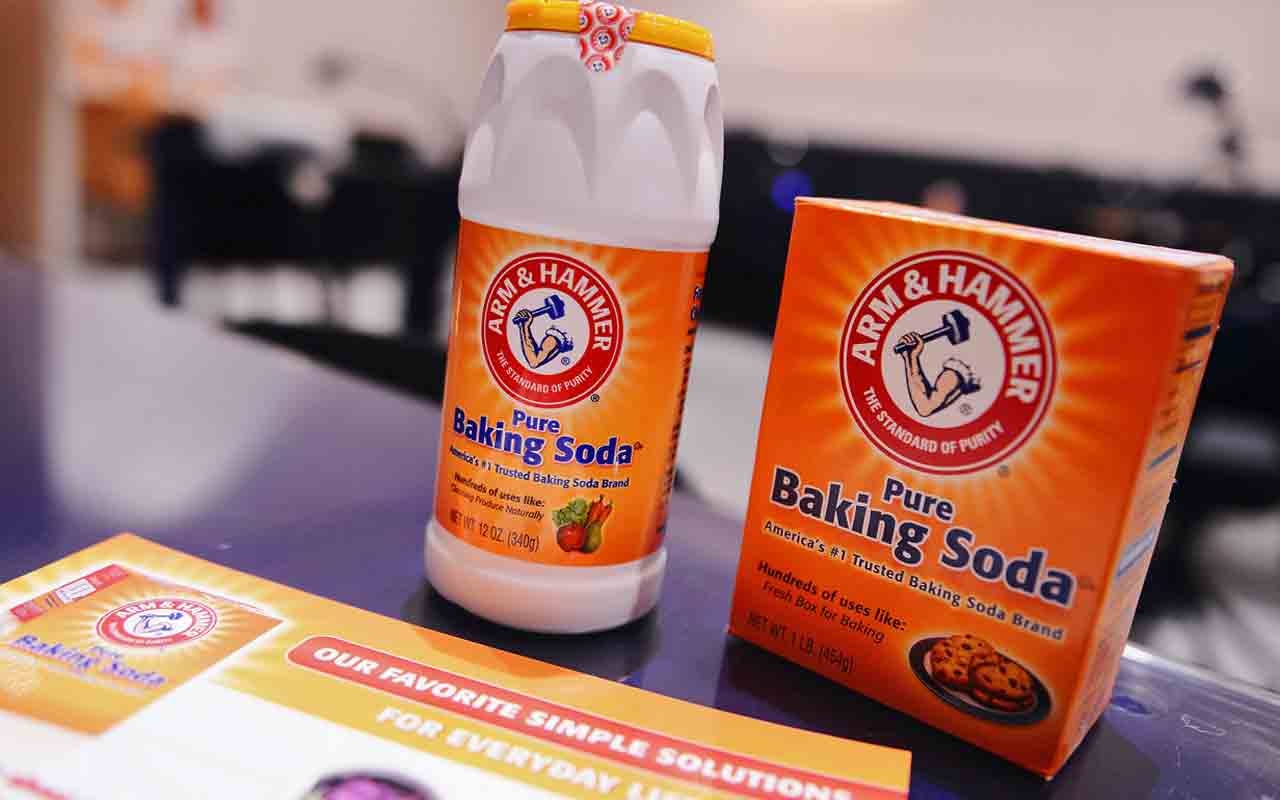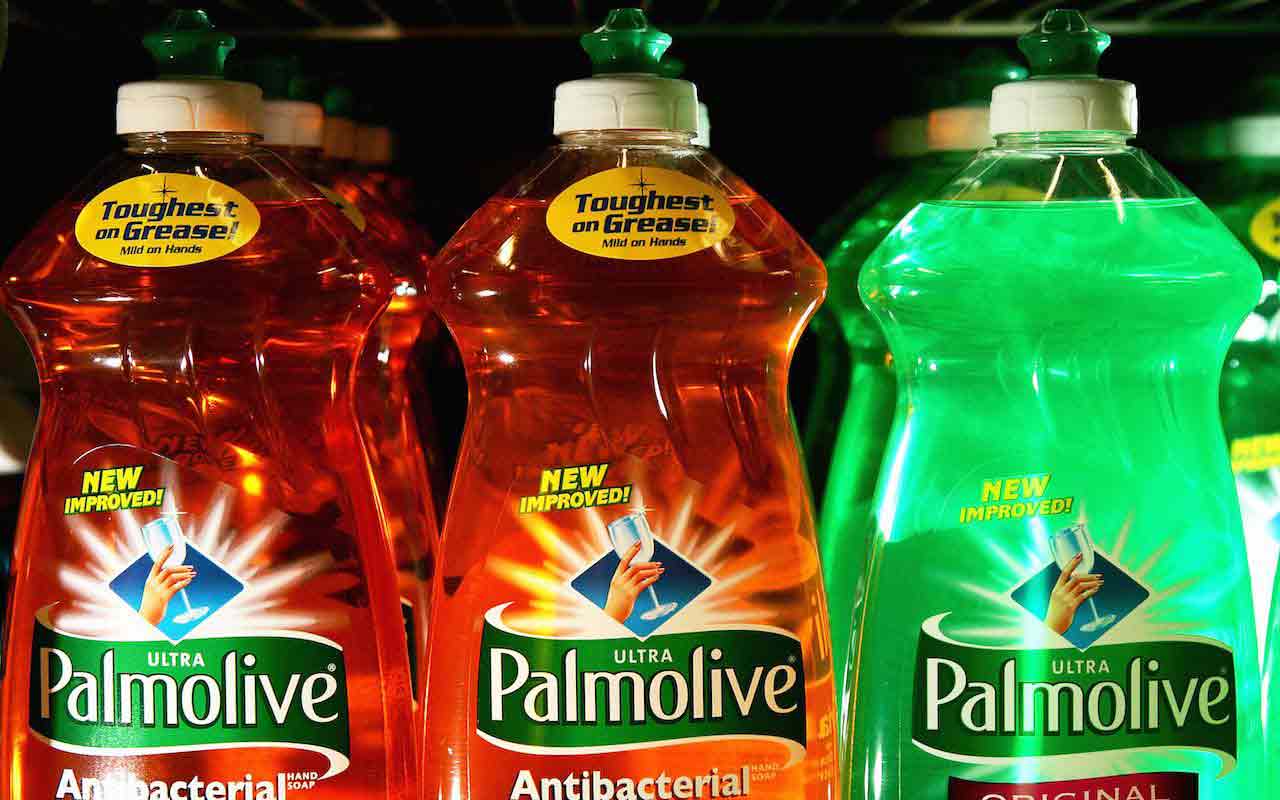13 Dividend Stocks That Have Paid Investors for 100+ Years
Here are 13 dividend stocks that each boast a rich history of uninterrupted payouts to shareholders that stretch back at least a century.


Profit and prosper with the best of Kiplinger's advice on investing, taxes, retirement, personal finance and much more. Delivered daily. Enter your email in the box and click Sign Me Up.
You are now subscribed
Your newsletter sign-up was successful
Want to add more newsletters?

Delivered daily
Kiplinger Today
Profit and prosper with the best of Kiplinger's advice on investing, taxes, retirement, personal finance and much more delivered daily. Smart money moves start here.

Sent five days a week
Kiplinger A Step Ahead
Get practical help to make better financial decisions in your everyday life, from spending to savings on top deals.

Delivered daily
Kiplinger Closing Bell
Get today's biggest financial and investing headlines delivered to your inbox every day the U.S. stock market is open.

Sent twice a week
Kiplinger Adviser Intel
Financial pros across the country share best practices and fresh tactics to preserve and grow your wealth.

Delivered weekly
Kiplinger Tax Tips
Trim your federal and state tax bills with practical tax-planning and tax-cutting strategies.

Sent twice a week
Kiplinger Retirement Tips
Your twice-a-week guide to planning and enjoying a financially secure and richly rewarding retirement

Sent bimonthly.
Kiplinger Adviser Angle
Insights for advisers, wealth managers and other financial professionals.

Sent twice a week
Kiplinger Investing Weekly
Your twice-a-week roundup of promising stocks, funds, companies and industries you should consider, ones you should avoid, and why.

Sent weekly for six weeks
Kiplinger Invest for Retirement
Your step-by-step six-part series on how to invest for retirement, from devising a successful strategy to exactly which investments to choose.
When it comes to investing in dividend stocks, it's patience that results in the real payday for shareholders.
The most obvious measure of a company's income potential, its dividend yield, is calculated on an annualized basis using 12 months of distributions. That typically is spread across four payments, with one dividend paid out each quarter, meaning you can hold a stock for about 12 weeks without seeing a penny in dividends if you wind up selling at an inopportune time.
Beyond the simple practicalities of making sure you're eligible for the next dividend, the real reason patience pays for income investors is the dramatic lift dividends provide over the very long term. Consider that the S&P 500 Index of large U.S. stocks is up 167% since the beginning of 2010. However, if you account for the dividends paid out by the constituent stocks in this benchmark and reinvest that cash back into the index, your return jumps to more than 230% over the past 10 years or so!
If this is the performance that dividends can deliver across a decade, imagine what happens when you account for a century or more of payouts.
These 13 dividend stocks have provided just that: a rich history of uninterrupted cash distributions to shareholders stretching back at least 100 years.
Data is as of May 20. Dividend yields are calculated by annualizing the most recent payout and dividing by the share price. Stocks ordered by longevity of dividend program.

Coca-Cola
- Sector: Consumer staples
- Market value: $197.1 billion
- Dividend yield: 3.6%
- Consecutive dividends since: 1920
Coca-Cola (KO, $45.89) is the newest addition to this club of long-paying dividend stocks, boasting 100 years of consecutive distributions as of 2020. What's more, a February announcement that Coke was boosting its quarterly dividend by a penny marked the 58th straight year where its payouts have grown for shareholders. That makes Coca-Cola a Dividend King – an elite group of Dividend Aristocrats who have grown their cash payments for half a century or more.
Consumer tastes might be moving toward healthier options and away from this soft drink company's flagship soda. But the brand power and global reach of Coke – not to mention acquisitions such as Costa Coffee and launches such as Coca-Cola-branded energy drinks to appeal to wider tastes – mean KO remains a very stable income stock for the long-term.

Chubb
- Sector: Financials
- Market value: $47.2 billion
- Dividend yield: 2.9%
- Consecutive dividends since: 1902
Chubb (CB, $104.61) is a Switzerland-based insurance company that offers a wide array of policies covering homes, cars, businesses and more. Its business model of collecting regular premiums from clients to cover liability also feeds regular dividends as Chubb passes a share of those payments on to its shareholders.
CB has been doing this for more than a century, so it knows something about managing its insurance risks as well as managing its dividend payments. And just recently, the Dividend Aristocrat announced a 4% increase in its quarterly distribution, to 78 cents per share, marking its 27th consecutive year of payout hikes.

Church & Dwight
- Sector: Consumer staples
- Market value: $17.7 billion
- Dividend yield: 1.3%
- Consecutive dividends since: 1901
Perhaps you don't recognize the duo of Church & Dwight (CHD, $72.15), but you'll surely recognize the pairing of Arm & Hammer – one of the most popular brands in the CHD arsenal. Beyond its many baking-soda inspired household products, which range from kitty litter to laundry detergent, Church & Dwight also is the company behind Orajel dental care products, OxiClean cleansers and Trojan condoms.
Shares of Church & Dwight have been quite a growth engine for a consumer staples stock, delivering nearly 70% in price performance over the past five years versus just 40% for the S&P 500 Index in the same period.
However, it's the 119-year-long dividend history that should really appeal to income investors. Few dividend stocks have that kind of longevity.

PPG Industries
- Sector: Industrial
- Market value: $22.6 billion
- Dividend yield: 2.1%
- Consecutive dividends since: 1899
Originally named Pittsburgh Plate Glass, the firm changed its name in the 1960s to PPG Industries (PPG, $95.99) to reflect a company that had grown far beyond this single business line.
PPG has evolved over the past century or so into a host of industrial applications including paints, solvents, adhesives and even fiberglass. This diverse product line ensures for a diversified revenue stream to back up an income stream to public stockholders.
The business is indeed cyclical and tied to broader industrial demand. However, PPG is among a handful of dividend stocks whose payouts have survived the Great Depression and two World Wars. That should give investors peace of mind.

General Mills
- Sector: Consumer staples
- Market value: $36.9 billion
- Dividend yield: 3.2%
- Consecutive dividends since: 1898
Another big consumer name in the universe of long-term dividend payers that can't be overlooked is General Mills (GIS, $60.93).
You know it as the "Big G" company behind Cheerios cereal, Häagen-Dazs ice cream, Betty Crocker cake mixes and more. These big brands have big loyalty, and GIS is enjoying particularly strong sales at a time during which folks are eating out less and making dinner at home.
General Mills clearly is a long-term dividend play, with more than 120 consecutive years of payouts under its belt, as well as 15 straight increases. However, the aforementioned short-term demand trends have lifted General Mills more than 15% over the past 12 months while the broader S&P is up just 5%.

Colgate-Palmolive
- Sector: Consumer staples
- Market value: $60.4 billion
- Dividend yield: 2.5%
- Consecutive dividends since: 1895
Colgate-Palmolive (CL, $70.47) has plenty of products in its arsenal of brands beyond the two that appear most prominently in its name, including Speed Stick deodorant, Ajax cleansers and Hill's pet products.
While many consumer discretionary stocks have taken a tumble in the wake of the global pandemic, the reality is that folks must continue to brush their teeth and wash their clothes, even under quarantine. That's a great example of how staples stocks such as CL have staying power regardless of broader economic disruptions.
That's also how Colgate-Palmolive can continue to pay its dividends across good times and bad. Its 125-year track record is surpassed by only a handful of dividend stocks, and that payout has grown without interruption for the past 57 years.

Stanley Black & Decker
- Sector: Industrials
- Market value: $19.6 billion
- Dividend yield: 2.2%
- Consecutive dividends since: 1895
Like some of the other stocks on this list, power tool giant Stanley Black & Decker (SWK, $127.13) has changed a great deal over the years.
Stanley started as a humble hand tool and fastener company just after the Civil War, but it steadily has grown and evolved. The acquisition of Black & Decker was just a little more than a decade ago, and it snapped up the Craftsman tool line in 2017. But Stanley also boasts security systems, drilling solutions and even healthcare tags, pendants and other products.
SWK has one of the longest dividend programs, at 125 years. And its diversified and entrenched tools business should ensure those paydays keep rolling for many years to come.

Procter & Gamble
- Sector: Consumer staples
- Market value: $280.4 billion
- Dividend yield: 2.8%
- Consecutive dividends since: 1890
With a deep stable of some of the biggest brands in American consumer goods, Procter & Gamble (PG, $113.28) is one of those stocks that will find buyers of its products in any environment. These items include Bounty paper towels, Tide detergent, Gillette shaving products, Vicks cold and flu treatments, and Pampers diapers, just to name a few.
With its 63-year streak of annual dividend increases on top of more than a century of consecutive quarterly dividends, P&G is seen as the quintessential income stock by many investors.

Johnson Controls
- Sector: Industrials
- Market value: $21.4 billion
- Dividend yield: 3.6%
- Consecutive dividends since: 1887
Johnson Controls (JCI, $28.74) is an interesting industrial company that provides sprinkler systems, heating and cooling services, and security equipment for buildings.
In 2016, Johnson Controls merged with Tyco International and moved its headquarters to Ireland; however, the firm has deep U.S. roots. After founder Warren Johnson invented one of the first thermostat controls, he and a group of investors formed the company in Wisconsin way back in 1885.
Soon after, JCI began paying dividends to its public shareholders – a practice that continues to this day.

Consolidated Edison
- Sector: Utilities
- Market value: $23.6 billion
- Dividend yield: 4.3%
- Consecutive dividends since: 1885
Consolidated Edison (ED, $70.74) is one of several dividend-paying stocks on this list with a rich history that dates back to the early days of American industrial might.
Getting its start as the New York Gas Light Company in 1823, this utility originally provided natural gas to buildings nearly 100 years before the typical American household had electricity. ConEd eventually electrified New York City and the surrounding area, and started paying generous and consistent dividends along the way.
Utility stocks are beloved by income investors. That's because they're typically reliable long-term income plays thanks to their built-in demand, geographic monopolies and a regular monthly billing cycle that fills their coffers.

Eli Lilly
- Sector: Health care
- Market value: $146.5 billion
- Dividend yield: 1.9%
- Consecutive dividends since: 1885
Eli Lilly (LLY, $151.13) is a Big Pharma leader that has made a name for itself with branded products that include Prozac and Cialis. More recently, blockbusters for LLY include top seller Trulicity, for diabetes, insulin product Humalog and chemotherapy drug Alimta.
Eli Lilly continues to research the next generation of drugs, too; it's also trying to fuel new products through acquisitions such as its $8 billion deal to buy Loxo Oncology in 2019.
This broad suite of exiting treatments coupled with constant research of new cure ensures plenty of stability – and dividends – for this drugmaker.

Exxon Mobil
- Sector: Energy
- Market value: $191.9 billion
- Dividend yield: 7.7%
- Consecutive dividends since: 1882
The modern energy behemoth of Exxon Mobil (XOM, $45.37) takes its roots from the Standard Oil monopoly. In fact, both the Exxon and the Mobil nameplates were spun out of the bigger oil firm that John D. Rockefeller had built before they rejoined back in 1998.
However, if you trace those roots all the way back to 1882, you'll see the beginning of a regular dividend commitment that extends to today.
Although the future is uncertain – oil demand has dried up thanks to COVID-19, and global warming concerns are eating away at the world's love for fossil fuels – XOM should have the resources to thrive for many years to come.

York Water
- Sector: Utilities
- Market value: $552.9 million
- Dividend yield: 1.7%
- Consecutive dividends since: 1815
If all goes as scheduled, York Water (YORW, $42.45) will tally its 600th consecutive dividend payment this year – a record that spans two centuries, and that the company claims might be the longest-running commitment of any Wall Street company. Adding to its pedigree, the Pennsylvania-based firm is the oldest publicly traded utility in the nation.
The yield is admittedly one of the smallest among the dividend stocks on this list. And the total market value is a fraction of what some of the bigger stocks out there have to offer.
But if you care about consistent dividend payments above all else, York Water is worth a look.
Profit and prosper with the best of Kiplinger's advice on investing, taxes, retirement, personal finance and much more. Delivered daily. Enter your email in the box and click Sign Me Up.

Jeff Reeves writes about equity markets and exchange-traded funds for Kiplinger. A veteran journalist with extensive capital markets experience, Jeff has written about Wall Street and investing since 2008. His work has appeared in numerous respected finance outlets, including CNBC, the Fox Business Network, the Wall Street Journal digital network, USA Today and CNN Money.
-
 Dow Adds 1,206 Points to Top 50,000: Stock Market Today
Dow Adds 1,206 Points to Top 50,000: Stock Market TodayThe S&P 500 and Nasdaq also had strong finishes to a volatile week, with beaten-down tech stocks outperforming.
-
 Ask the Tax Editor: Federal Income Tax Deductions
Ask the Tax Editor: Federal Income Tax DeductionsAsk the Editor In this week's Ask the Editor Q&A, Joy Taylor answers questions on federal income tax deductions
-
 States With No-Fault Car Insurance Laws (and How No-Fault Car Insurance Works)
States With No-Fault Car Insurance Laws (and How No-Fault Car Insurance Works)A breakdown of the confusing rules around no-fault car insurance in every state where it exists.
-
 Dow Adds 1,206 Points to Top 50,000: Stock Market Today
Dow Adds 1,206 Points to Top 50,000: Stock Market TodayThe S&P 500 and Nasdaq also had strong finishes to a volatile week, with beaten-down tech stocks outperforming.
-
 Stocks Sink With Alphabet, Bitcoin: Stock Market Today
Stocks Sink With Alphabet, Bitcoin: Stock Market TodayA dismal round of jobs data did little to lift sentiment on Thursday.
-
 Dow Leads in Mixed Session on Amgen Earnings: Stock Market Today
Dow Leads in Mixed Session on Amgen Earnings: Stock Market TodayThe rest of Wall Street struggled as Advanced Micro Devices earnings caused a chip-stock sell-off.
-
 Nasdaq Slides 1.4% on Big Tech Questions: Stock Market Today
Nasdaq Slides 1.4% on Big Tech Questions: Stock Market TodayPalantir Technologies proves at least one publicly traded company can spend a lot of money on AI and make a lot of money on AI.
-
 Fed Vibes Lift Stocks, Dow Up 515 Points: Stock Market Today
Fed Vibes Lift Stocks, Dow Up 515 Points: Stock Market TodayIncoming economic data, including the January jobs report, has been delayed again by another federal government shutdown.
-
 Stocks Close Down as Gold, Silver Spiral: Stock Market Today
Stocks Close Down as Gold, Silver Spiral: Stock Market TodayA "long-overdue correction" temporarily halted a massive rally in gold and silver, while the Dow took a hit from negative reactions to blue-chip earnings.
-
 Nasdaq Drops 172 Points on MSFT AI Spend: Stock Market Today
Nasdaq Drops 172 Points on MSFT AI Spend: Stock Market TodayMicrosoft, Meta Platforms and a mid-cap energy stock have a lot to say about the state of the AI revolution today.
-
 S&P 500 Tops 7,000, Fed Pauses Rate Cuts: Stock Market Today
S&P 500 Tops 7,000, Fed Pauses Rate Cuts: Stock Market TodayInvestors, traders and speculators will probably have to wait until after Jerome Powell steps down for the next Fed rate cut.
